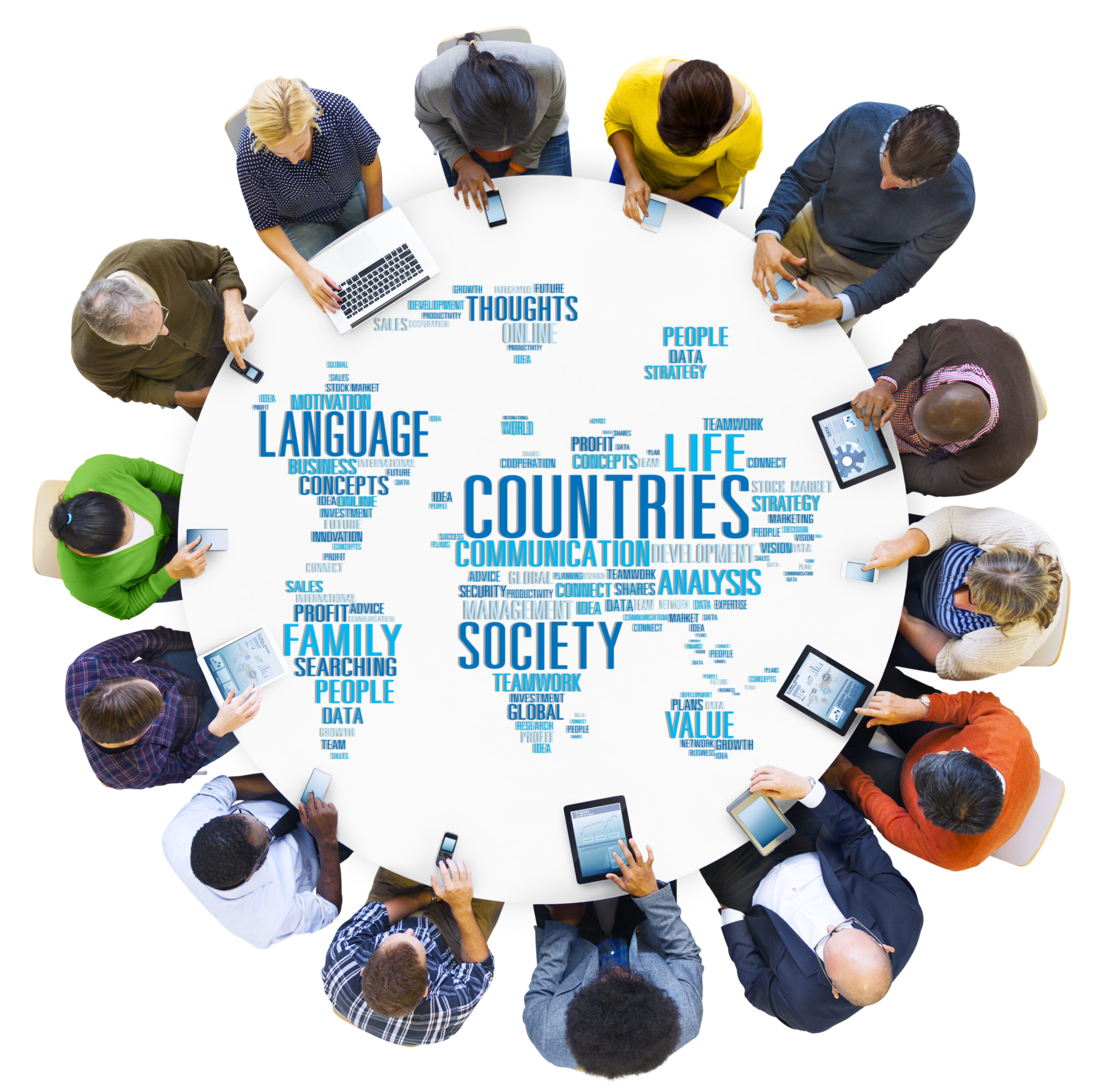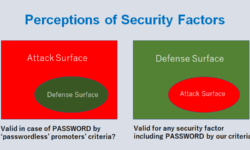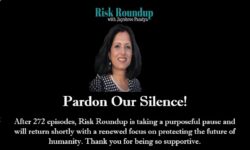Dr. Hynd Bouhia, President, CEO, Author, Mentor, and Forbes 100 most powerful women in the world, participate in Risk Roundup to talk about “Need To Build Sustainability Into Business Practices.”
Background
Today, nations and their economies rely entirely on the human environment and ecosystem. The reason is that the human ecosystem plays a central role in all human services—and without the essential environmental resources, humans cannot survive.
But it is no secret that the environment is not just ours—for those of us living today. The environment belongs to all life today, tomorrow, and forever. So, it is time to evaluate the interconnectedness between human existence, environment, and economy to help us strategize how to build sustainability in everything we do. And for that, assessing the implications of our actions today that will shape our coming tomorrow is essential.
Planet Earth
The reason is that the planet Earth is our only home today for the entire human civilization. The environment provides life support functions to the Earth’s inhabitants. While human society may end up becoming multi-planetary species in the future, at this point, we have no other place to go if Earth becomes inhabitable.
So, the question is:
- What could go wrong on our planet?
- What has the ecology of our planet got to do with the economy?
To understand that we should first consider planet Earth as a system. We also must realize that all living organisms, including the human species, receive inputs from the environment in the form of air, food, and water. Not only that, each one of us gives off outputs in the form of excrement that goes back to the environment. So, any resource deprivation from the environment in the form of input is fatal.
Similarly, depriving the ability to dispose of any output is also fatal. Therefore, we need to stop believing that we live on virtually infinite environmental resources that will provide limitless input to human systems and understand the potential implications of the known limits of human habitation, production, and consumption.
Need For Economic Analysis
Environmental Economics, the study of the allocation of scarce resources, markets function, and incentives affecting individual and institutions’ behavior, gives us a foundation to further our understanding of sustainability needs and solutions.
The need to change individual and institutions’ behavior needs to deal with several issues beyond inefficient natural resource allocation, market failure, externalities, and management of resources and incorporate accountability in human action and decision.
Understanding how well-defined metrics affect individuals’ and institutions’ behavior is necessary. We need to develop improved methods for measuring the economic consequences of individuals’ and institutions’ environmental outcomes. We also need to formulate models to explain the various economic activities and their external effects. The main objective is to:
- bring accountability in individuals’ and institutions’ actions and decisions
- maintain a balance between economic development and environmental protection
- move beyond static problems of market behavior
- build dynamic decision-making sustainability score that unlocks benefits for individuals and institutions
Sustainable development that meets the needs of the present without compromising the ability of future generations to meet their own needs is a need of time. Risk Group, therefore, proposes developing Sustainability Score.
Sustainability Score
A Sustainability Score will indicate that the individuals and institutions can be trusted with their actions and decisions to protect the environment. Therefore, the proposed system should focus on individuals’ and institutions’ accountability towards the environment and be integrated with current and emerging systems.
- A Sustainability Score can be assigned values and will help build individual and institutional capacity for accountability.
- A sustainability score can be defined and developed to measure what individuals and institutions are willing to do to protect the environment.
- The Sustainability score can be realized in the future for college admissions, job interviews, credit, loans, and much more.
The Sustainability Score should also be an integral part of Environmental Economics and focus primarily on how and why individuals and institutions make decisions that affect the natural environment. The benefits of developing a system of Sustainability Score will be enormous—not only for building but also for helping shape sustainability and protect the future of humanity. Now is the time to develop a Sustainability Score to safeguard our collective future!
For more, please watch the Risk Roundup Webcast or hear the Risk Roundup Podcast
About the Guest
Dr. Hynd has a Harvard Ph.D., an engineering diploma, several years of experience in finance and strategy, and several international awards and recognitions. She is the President & CEO – Professor, Mentor & Author of Economic Intelligence & Sustainable Finance, and Forbes has listed Dr. Bouhia among the 100 most powerful women.
About the Host of Risk Roundup
Jayshree Pandya (née Bhatt) is a leading expert at the intersection of science, technology, & security. She is a globally recognized futurist passionate about protecting the Future of Humanity. She serves in the C-Suite of leading emerging technology startups, actively applying her scientific background to designing systems. She has a Ph.D. in Microbiology for her 1986-1991 work on Hydrogen Production by Halobacterium halobium, for which she was also awarded a National Young Scientist Award in Biochemistry in 1988-89. In addition, she has done two postdoctoral fellowships, one at the University of Hawaii and another at the University of Chicago. She also did her Executive Education Program in Operations and Change Management at Rice University – Jesse H. Jones Graduate School of Management in 2000 – 2001. She founded Risk Group LLC in 2002 that evolved into a Strategic Security Risk Research Organization, Platform, and Community in 2015. She is also the host of the influential Risk Roundup Podcast on a mission to talk to a million decision-makers. She has already conducted more than 260 one-to-one interviews with top decision-makers worldwide. She is now leading the global discussions on emerging technologies, technology transformation, and nation preparedness.
Her scientific research has contributed to more than 30 peer-reviewed articles in top international journals. Moreover, her research across many other domains has contributed to more than 100 publications and is pursued to provide strategic security solutions. She wrote for Forbes in 2019-2020 and now writes regularly for Risk Group. In addition, she has published three Strategic Security Risk Reports and three books, The Global Age, The Quantum Threat, and Geopolitics of Cybersecurity. She is an invited speaker on emerging technologies, technology transformation, digital disruption, and strategic security risks from the National Science Foundation to leading organizations in the United States, Europe, and Asia. She can be reached at + (832) 971 8322 and followed on Twitter @jayshreepandya and LinkedIn @drjayshreepandya.
About Risk Roundup
Risk Roundup, a global initiative launched by Risk Group, is a security risk reporting for risks emerging from existing and emerging technologies, technology convergence, and transformation happening across cyberspace, aquaspace, geospace, and space. Risk Roundup is released in audio (Podcast) and video (Webcast) formats. It is available for subscription on the Risk Group Website, iTunes, Google Play, Stitcher Radio, Android, and Risk Group Professional Social Media.
About Risk Group
Risk Group is a Strategic Security Risk Research Platform and Community. Risk Group’s Strategic Security Community and Ecosystem is the first and only cross-disciplinary and collective community that is made of top scientists, security professionals, thought leaders, entrepreneurs, philanthropists, policymakers, and academic institutions from across nations collaborating to research, review, rate, and report strategic security risks to protect the future of humanity.
Copyright Risk Group LLC. All Rights Reserved





 What Should Be The Focus Of Enlightenment 2.0?
What Should Be The Focus Of Enlightenment 2.0?